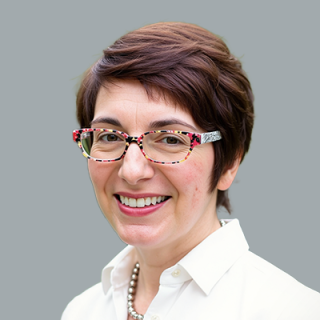Blog
What's in Store for SPACs in 2022: A Conversation with Doug Ellenoff
SPACs have been experiencing some serious headwinds lately. January has been a particularly difficult time for SPACs. We've seen average redemptions at 82%. We are seeing more lawsuits against SPACs and certainly more negative media and regulator attention. Many of my SPAC clients are delaying their IPO and de-SPAC plans, and some are withdrawing their filings.

To discuss the current situation, I recently sat down with Doug Ellenoff, a founder of the top SPAC law firm, Ellenoff Grossman & Schole. Over the past two decades, Doug and his team have been involved with more than 250 SPAC IPOs and 60 business combinations. Here are the highlights of our conversation.
Listen to the interview:
Have SPACs become riskier lately?
Doug Ellenoff: A year ago, we would have had a very different conversation since we were during a SPAC euphoria. Now we are in a decidedly different period. You must pull back and always look at it in the context of the 30-year history of the program. We’ve had ups and downs previously. We've had a year's worth of regulatory pressure and a year's worth of increased litigation. It is also fair to say that many SPACs—importantly, not SPACs alone, but most at-risk assets, including crypto, traditional IPOs, biotech, and software companies—have taken it on the chin the last 30 to 60 days in terms of the post-business combination pricing.
It is also fair to say that we are going to be looking at a wall of SPACs that need to de-SPAC and, consequently, it is an inevitability that there will be more liquidations. It is also a true statement that those SPACs that are seeking PIPE financing are having more difficulty attracting true fundamental investors to participate in those transactions.
It's only for that reason I am disturbed by the increased redemption activity. If you can't find fundamental equity to participate in the PIPE, then the redemption figures are problematic. If you're able to find the permanent equity capital as opposed to some sort of structured financing, then the PIPE is less important. You can still get your business combination done.
We happen to be having this conversation at a precarious moment in SPAC history. We’ll survive it, but there will be a lot of people who live through some difficult times.
Why are SPACs getting this negative attention?
A year ago, all the financial press was quite positive, and the pendulum has now swung the other way. However, we must take the criticism and concern to heart because, without doing that and being intellectually honest about where the results are now, we run the risk of being equally devoid of fairness.
It is a true statement that many SPACs financed last year are trading down, but there are also many SPACs doing quite well. Where I take issue is when the angle of the journalist is to point to the SPAC industry as the scapegoat, as you suggest, without a broader perspective.
If all anybody does is criticize SPACs without also having a reference point that traditional IPOs, for example, aren't trading well, then they’re not being intellectually fair. SPACs have a current problem, but so do a lot of other capital markets vehicles.
I don't accept the fundamental criticism—whether from the academics or the regulators—that there's something inherently wrong within the SPAC program. Their analysis is incorrect, and they are drawing conclusions that suit their narrative. Are there things that can be done to improve the program? Yes, there are. And we can talk about those things. The criticisms largely boil down to people speaking their own positions.
What changes are on the horizon?
Whether I'm speaking to an insurance brokerage firm like yours or bankers or sponsors, we're constantly having conversations about how we should improve things and reduce risk. However, I do not believe the recent congressional legislation improves the SPAC program. In fact, it hurts those it intends to help. So, there is an opportunity to improve the program through good conversations with Congress or the SEC.
If you’re really trying to improve, you should ask all market participants, like we did with crowdfunding. In the early days of crowdfunding, I made 50 trips to DC, talking to the SEC, FINRA, NASAA, and many others to make sure that we positioned the crowdfunding industry in a way that was going to increase the likelihood of success. I'm proud to say that a decade later, things are looking pretty good for that program.
Let’s talk about the Investment Company Act cases brought by Robert Jackson and then about other SPAC litigation. Does the increase in SPAC litigation reflect an actual risk to investors?
I and others had multiple conversations with the SEC as early as 2006 about whether a SPAC should be subject to the Investment Company Act. All agreed that it was not, and SEC signed off on that. That question was asked and answered long ago, and it is opportunistic to raise this issue again now.
Six Types of SPAC Lawsuits and Counting…
“My hat's off to you and thank you for the Woodruff Sawyer litigation analysis report that you referenced that I would encourage everybody to look at. I think it's authoritative and very thoughtful.” –Doug Ellenoff
Focusing on the SPAC litigation, up until 2019, there was virtually no litigation in the SPAC space. Now the plaintiff's bar is bearing down on the SPAC business. It’s purely a game of numbers. The deal sizes have gotten larger, and they’ve picked deals with the greatest vulnerability.
MultiPlan Ruling:
The Chancery Court in MultiPlan did not make a broad statement against the SPAC structure. The judge was uncomfortable letting the defendants out on a motion to dismiss based on a few case-specific facts, but her ruling was not an indictment of the SPAC vehicle.
There was the substantive claim about whether there was a misrepresentation in a securities filing having to do with the customer. The judge felt it was subject to future investigation, which is why she denied the motion to dismiss. She also didn't like the payment that Michael Klein received for closing the deal.
There are many pieces in this case. One of them, conflicts of interest, has been at the forefront of the conversation from the insurance side of things. It's a topic that worries the insurers when they're looking at SPACs for D&O insurance purposes.
The MultiPlan case is important because we haven't really seen many decisions in this area. The more there are, the clearer the general view will become, and the more beneficial that clarity will be to the general market.
Litigation volume and outcomes are a central topic of discussion when it comes to insurance coverage for the SPAC’s and the target’s directors and officers. Insurance costs have increased based in part on the uncertainty that the insurers are seeing in the market and the negativity from the regulators and the media. So, cases like MultiPlan and some of the enforcement actions are helping to clear that fog and will result in reasonable insurance treatment for future SPAC teams coming to the market and de-SPACs.
Do your teams understand the importance of D&O insurance?
They understand it, but they also accept that the price has increased to reflect the increased litigation activity. The conversation has become much more sophisticated and nuanced in the last couple of years. Firms like yours have done a very good job educating sponsors about available insurance products that are customized to suit the SPAC industry.
By my analysis, if you've looked at the actual numbers, the litigations versus the number of business combinations that have successively closed without litigation, it's still less.
In 2021, there were 31 securities class actions that were brought against SPACs. By comparison, in the previous year there were five, and the year before there were two. That increase reflects the number of SPACs that entered the market. But if you think of the hundreds and hundreds of SPACs that entered the market, an increase from five to 31 is not that tremendous.
Insurers do consider SPACs as riskier than traditional IPOs, unfortunately. The insurers now believe that a traditional IPO is less risky than a private company de-SPACing. As a result, they are putting a premium on the premium. Right now, we are seeing a differential somewhere around 20% if you are going public through a traditional IPO versus if you're going public through a SPAC.
Most deals, however, get done without that sort of litigation. Eventually, insurers will realize that things will calm down, and the insurance will become more accessible and less costly. And the decisions in cases like MultiPlan will help get us there.
What regulatory rule changes do you see coming?
There are several things that I’m not happy with in the SPAC market. I don't like, for example, the fact that before a deal gets announced, the stock skyrockets. That's not appropriate. The other one that I'm sympathetic to, which SEC Chair Gensler speaks to in his remarks, is the inappropriateness of announcing a deal and then filing the proxy or the S-4 months later. That creates an asymmetry of information, even though what he failed to acknowledge is until that information is in the public market, those same investors have the right to redeem if they don't like what they see.
With changes in private market practice, things by and large are a lot better than a year ago—without any rule changes, which apparently are coming.
One of them will be making sure that the filings are made in a timelier manner after the announcement. The projection safe harbor will get taken away. I take issue with that. Rather than dumbing down SPACs to be on a "level playing field" with IPOs, the better approach would be to say that SPACs struck a chord. Why is that, and can we improve the IPO process? I like any new financing technique, whether it's an IPO or a direct listing. They each serve their purpose.
The capital markets are not working. We are not making enough new public companies. We can debate the mechanisms for it, but the reality is that, statistically, we have half the number of public companies we had 30 years ago.
The other tough issue for the SEC that they’re going to have to work on with Congress is the gatekeeper liability for taking a private company public. Let’s be clear—the underwriter in the IPO is not selecting the company they want to go public. Why should they have liability for that?
What does the future hold for SPACs?
Until there’s an understanding of why a SPAC exists and has a role to play in capital markets different from an IPO or direct listing, there will always be a SPAC market.
All these things add up to a changing landscape as to how to do your deals and who's got liability. But those changes won’t stop the program, notwithstanding all the regulatory hurdles that were thrown at the industry last year.
Last year, there were 650 SPAC IPOs—all on the SEC's watch. The SEC could have shut them down, but it didn't. And it's because there is a need for SPACs in the market.
We currently have normalized down to a couple of hundred SPACs a year, and we have solutions to all the issues that are being raised.
We will be having a very different conversation next year after a lot of bloodletting, a lot of liquidations, and a lot of the deals trading at well below SPAC and de-SPAC prices. This atmosphere creates a very interesting opportunity for investors. A lot of jobs will be created. We will have created a lot of new public companies, and it will be all healthy by the end of the year, even though some people will have lost a lot of money, and other people have made a lot of money.
Visit our SPACs industries page for more insights and resources related to Special Purpose Acquisition Companies.
Author
Table of Contents












